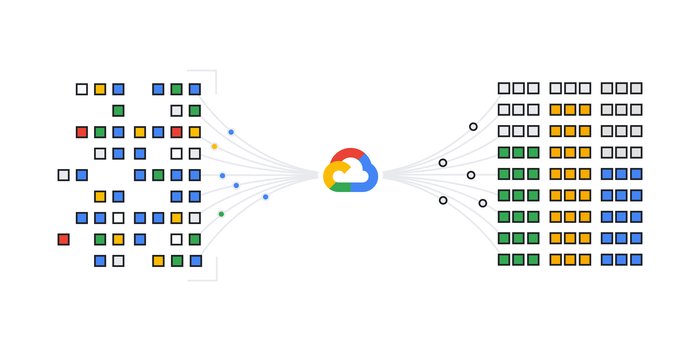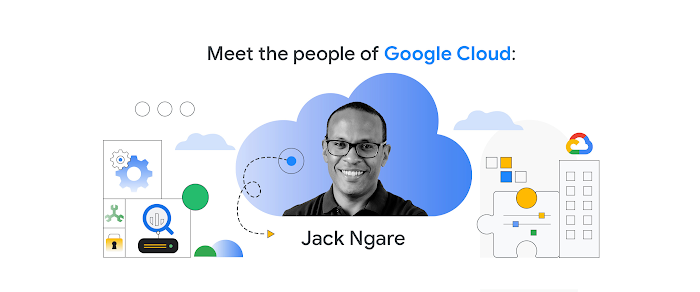Update on Google Cloud’s work with the U.S. Government
Thomas Kurian
CEO, Google Cloud
The United States Department of Defense is set to issue the replacement for its JEDI cloud procurement framework, and renamed the new framework JWCC. Recently, there has been some speculation and confusion regarding Google’s interest in participating in the framework and other workstreams the Google Cloud team has been working on with the government, including U.S. government certifications various cloud products and services have recently received.
To start, let me be clear: Since the earliest years of Google, we have proudly partnered with the U.S. government. We serve across civilian agencies, such as helping the National Oceanic and Atmospheric Association predict weather or enabling the Patent and Trade Office allow more patents to be discoverable. We also proudly serve the US military, whether it be detecting cancer faster, finding rust corrosion on navy vessels, or helping the Air Force improve aircraft maintenance. While doing so, we follow the processes we’ve put in place to ensure that our work aligns with our key areas of focus and the policies we have articulated.
JWCC (and JEDI before it) is designed as a procurement framework for the 28 main agencies, multiple component organizations and sub agencies that make up the Department of Defense. The DoD is the largest employer in the world with nearly 3 million employees including active duty and civilian personnel, as well as reserve and National Guard members.
The motivation for JWCC is simple: the DoD’s various branches are working with outdated technology that increases wasteful spending, limits the ability to efficiently communicate with each agency, and subjects the DoD and its constituent agencies to cyberthreats, putting its members and the nation as a whole at risk. Like many organizations around the world, the DoD wants to modernize its IT infrastructure into the cloud. It also wants to bring advanced technologies to future operational scenarios.
The JWCC may be used by the Department to store personnel records, analyze recruitment, keep medical records, or implement advanced cloud solutions beyond storage or basic analytics. The JWCC is essential to the success of the Department and the government in reducing costs, driving innovation, increasing productivity, and enhancing cybersecurity.
The JWCC procurement framework will create a pre-cleared list of vendors that DoD agencies will be able to work with on both “intra” and “inter” agency projects. The Department identified two vendors as capable of meeting the Department’s requirements: Microsoft and Amazon, both of which have at times sought to be the single cloud provider to DoD. We believe the Department should solicit assistance from numerous vendors, including Google Cloud, and that the Department should seek to make JWCC a multi-cloud environment, preserving choice, reducing costs and offering the Department a wide and diverse group of innovative vendors.
The DoD has recently announced the conclusion of its market research phase and will invite vendors to respond to a soon-to-be issued RFP. The RFP will most likely be designed to provide a general evaluation of the technical and security capabilities of each vendor.
We know very little about the specifics of the RFP because it has not yet been issued and Google has not yet been invited to bid. Most of our information is based on what we know of the JEDI proposal as well as what we have learned as part of the JWCC market research process.
However, if we are invited to be part of the JWCC contract, we will absolutely bid. And if selected as one of the compliant vendors, we will proudly work with the DoD to help them modernize their operations following the process we have in place for working with our customers, including the processes we’ve developed around our AI Principles.
Applying our AI Principles, we have developed governance processes that provide guidance and oversight into what AI products we will offer and what custom AI projects we will and will not pursue. We are committed to continuing to partner with the U.S. government, including the military, on specific projects that are consistent with our Principles.
When the JEDI RFP was issued, Google Cloud was not in a position to bid. First and foremost, our technologies were not ready to meet the various classification levels and other technical requirements necessary to compete. In addition, given the single-award nature of the contract, it was possible that there would be certain projects the DoD would pursue that were incompatible with Google’s AI Principles.
Since that time:
The JWCC is structured as a multi-vendor award. That means no single vendor will do all of the various projects contemplated under the framework. We think this is a wise approach given the size and breadth of operations the DoD encompasses. There will be many areas where our product capabilities and engineering expertise can be brought to bear in line with our AI Principles.
We have also matured our services to meet a number of government classification levels. That work is driven as much by our customers’ needs as our own direct government engagements. Every company that shares information or otherwise works with the US government is required to ensure its information systems meet certain technical and security requirements. If we did not meet these requirements, many of our customers would need to move to another platform.
We hope this helps clarify how Google Cloud works with and partners with the US government and specifically how we would work with the DoD as part of the JWCC framework if selected. We understand that not every Googler will agree with this decision, but we believe Google Cloud should seek to serve the government where it is capable of doing so and the work aligns with our AI principles and company values. The JWCC framework will offer up many opportunities for Google to help the men and women in our armed services to ensure their success and safety, and we look forward to doing so just as Google has been doing for many years.


